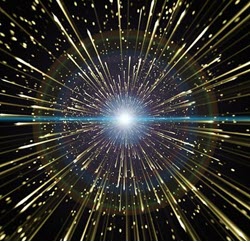In the depths of the universe, where stars dance and planets roam, an epic tale unfolds – one that speaks of destruction and creation, chaos and order. At the heart of this grand cosmic narrative lies a pivotal moment, a moment that set in motion the birth of galaxies, the formation of stars, and the emergence of life as we know it. This momentous event, known as the Big Bang, stands as the genesis of our universe, a cataclysmic explosion that birthed everything we see today.
The concept of the Big Bang theory has captivated the minds of scientists and astronomers for decades, offering a scientific explanation for the origin of our universe. According to this theory, the universe began as an infinitely small, dense, and hot point known as a singularity, which rapidly expanded and cooled over billions of years to form the vast expanse of space we observe today. This explosive birth heralded the creation of matter, energy, and the fundamental forces that govern the cosmos.
In the aftermath of the cosmic explosion, the universe was a cauldron of swirling gases and subatomic particles, a primordial soup from which galaxies, stars, and planets would eventually coalesce. Over the eons, gravity took hold, drawing matter together to form the first galaxies and clusters of stars. Within these cosmic crucibles, nuclear fusion ignited, unleashing a torrent of light and heat that illuminated the darkness of space.
As stars reached the end of their life cycles, they underwent spectacular explosions known as supernovae, scattering their elemental remains across the cosmos. These stardust remnants provided the raw materials for future generations of stars, planets, and even life itself. Through the alchemy of stellar evolution, the universe forged the building blocks of life – the elements that compose our bodies, the Earth, and the vast tapestry of existence.
On a tiny blue planet in the outskirts of a spiral galaxy, life arose from the primordial muck, the result of billions of years of cosmic evolution. From simple single-celled organisms to the dazzling diversity of plants, animals, and humans, life has flourished and adapted to the ever-changing conditions of our dynamic world. Each living being is a testament to the enduring legacy of the Big Bang, a reminder of our shared cosmic origins and interconnectedness with the universe.
In the grand tapestry of existence, the Big Bang stands as a pivotal moment – a genesis of creation that continues to shape our world and ignite our curiosity about the mysteries of the cosmos. From the infinite reaches of space to the depths of our own consciousness, the echoes of that explosive birth reverberate, reminding us of our place in the vast and wondrous universe that we call home.



























